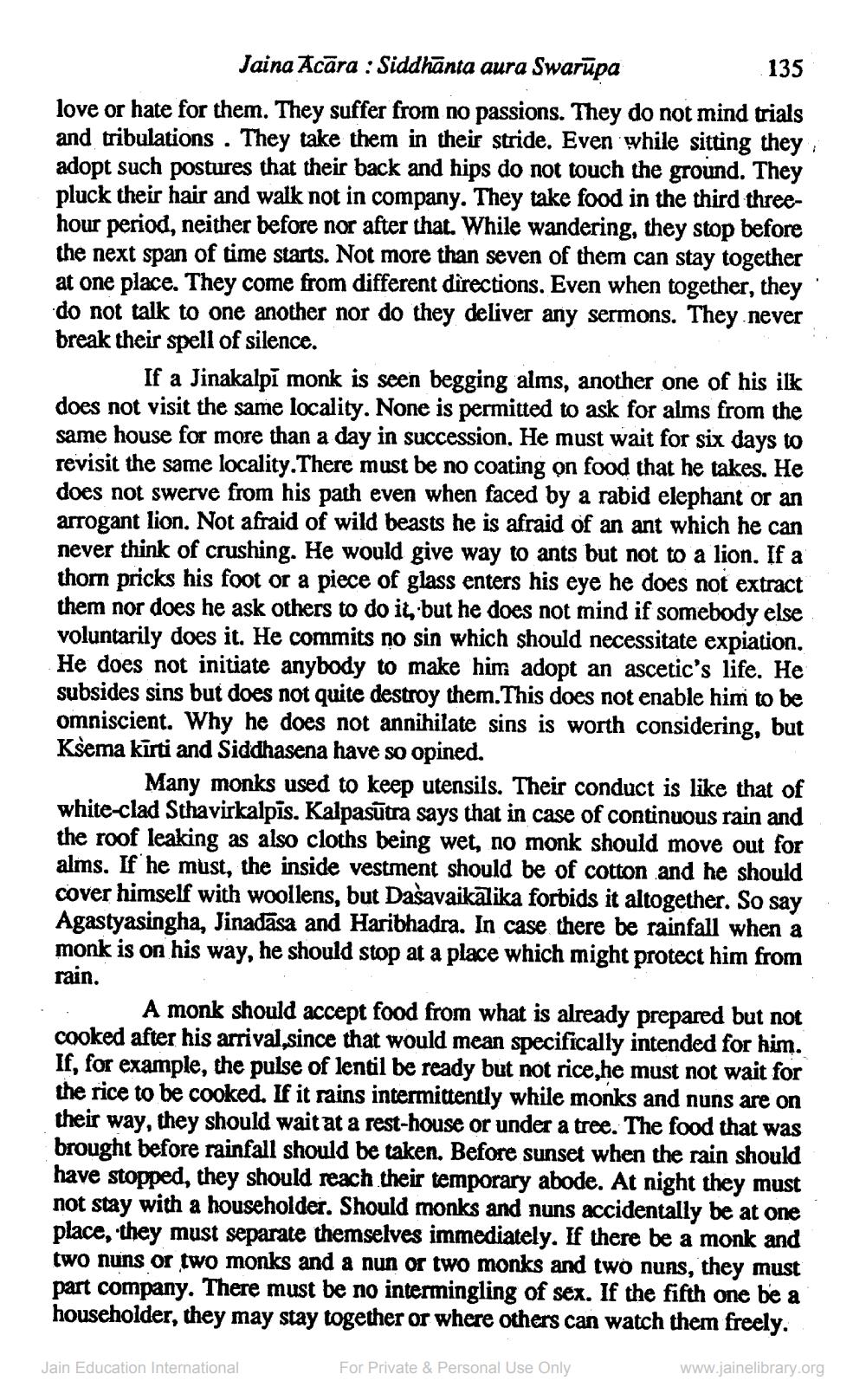________________
. 135
Jaina Acāra : Siddhanta aura Swarūpa love or hate for them. They suffer from no passions. They do not mind trials and tribulations. They take them in their stride. Even while sitting they , adopt such postures that their back and hips do not touch the ground. They pluck their hair and walk not in company. They take food in the third threehour period, neither before nor after that. While wandering, they stop before the next span of time starts. Not more than seven of them can stay together at one place. They come from different directions. Even when together, they do not talk to one another nor do they deliver any sermons. They never break their spell of silence.
If a Jinakalpi monk is seen begging alms, another one of his ilk does not visit the same locality. None is permitted to ask for alms from the same house for more than a day in succession. He must wait for six days to revisit the same locality. There must be no coating on food that he takes. He does not swerve from his path even when faced by a rabid elephant or an arrogant lion. Not afraid of wild beasts he is afraid of an ant which he can never think of crushing. He would give way to ants but not to a lion. If a thorn pricks his foot or a piece of glass enters his eye he does not extract them nor does he ask others to do it, but he does not mind if somebody else voluntarily does it. He commits no sin which should necessitate expiation. He does not initiate anybody to make him adopt an ascetic's life. He subsides sins but does not quite destroy them. This does not enable him to be omniscient. Why he does not annihilate sins is worth considering, but Ksema kirti and Siddhasena have so opined.
Many monks used to keep utensils. Their conduct is like that of white-clad Sthavirkalpīs. Kalpasūtra says that in case of continuous rain and the roof leaking as also cloths being wet, no monk should move out for alms. If he must, the inside vestment should be of cotton and he should cover himself with woollens, but Dasavaikälika forbids it altogether. So say Agastyasingha, Jinadasa and Haribhadra. In case there be rainfall when a monk is on his way, he should stop at a place which might protect him from rain.
A monk should accept food from what is already prepared but not cooked after his arrival,since that would mean specifically intended for him. If, for example, the pulse of lentil be ready but not rice, he must not wait for the rice to be cooked. If it rains intermittently while monks and nuns are on their way, they should wait at a rest-house or under a tree. The food that was brought before rainfall should be taken. Before sunset when the rain should have stopped, they should reach their temporary abode. At night they must not stay with a householder. Should monks and nuns accidentally be at one place, they must separate themselves immediately. If there be a monk and two nuns or two monks and a nun or two monks and two nuns, they must part company. There must be no intermingling of sex. If the fifth one be a householder, they may stay together or where others can watch them freely.
Jain Education International
For Private & Personal Use Only
www.jainelibrary.org




